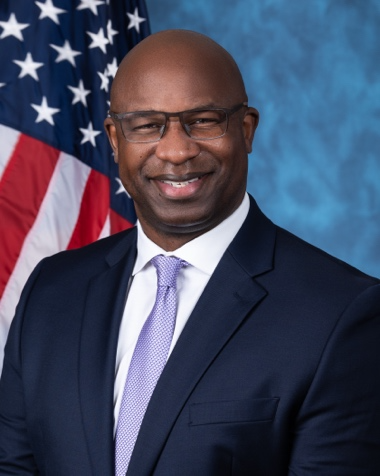Good Morning from Washington, D.C.
Last week, the United States Senate punted on major issues heading into the Memorial Day recess, leaving them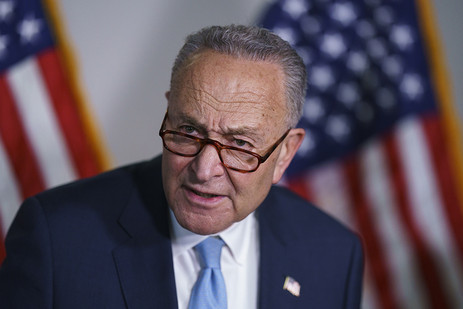 with a packed agenda for the rest of Session: Tuesday, June 8th through the July 4th recess. On Friday, the Senate delayed a vote on final passage of the United States Innovation and Competition Act (colloquially known as the “China bill” and formerly known as the Endless Frontiers Act), after Republican Senators forced a series of procedural votes that threatened to keep the Upper Chamber in Session over the holiday weekend. This followed Republicans grinding the Senate to a halt on Thursday night and into the early hours on Friday over their objections to the sweeping legislation. The delays came even after senators struck a bipartisan eleventh-hour deal on a GOP push for changes to the bill which were eventually adopted. Despite the procedural delays, Senators voted 86-11 earlier in the month to invoke cloture which will prevent a filibuster that could kill the bill, showing that despite debate on the particulars, there is wide-ranging bipartisan support for the measure. Senate Majority Leader Chuck Schumer’s updated schedule has the Senate resuming votes on the bill as soon as they return next week. “We have every intention of sticking it out until the job is done,” said Schumer on Friday.
with a packed agenda for the rest of Session: Tuesday, June 8th through the July 4th recess. On Friday, the Senate delayed a vote on final passage of the United States Innovation and Competition Act (colloquially known as the “China bill” and formerly known as the Endless Frontiers Act), after Republican Senators forced a series of procedural votes that threatened to keep the Upper Chamber in Session over the holiday weekend. This followed Republicans grinding the Senate to a halt on Thursday night and into the early hours on Friday over their objections to the sweeping legislation. The delays came even after senators struck a bipartisan eleventh-hour deal on a GOP push for changes to the bill which were eventually adopted. Despite the procedural delays, Senators voted 86-11 earlier in the month to invoke cloture which will prevent a filibuster that could kill the bill, showing that despite debate on the particulars, there is wide-ranging bipartisan support for the measure. Senate Majority Leader Chuck Schumer’s updated schedule has the Senate resuming votes on the bill as soon as they return next week. “We have every intention of sticking it out until the job is done,” said Schumer on Friday.
The Senate also failed to advance legislation creating a bipartisan commission to examine the January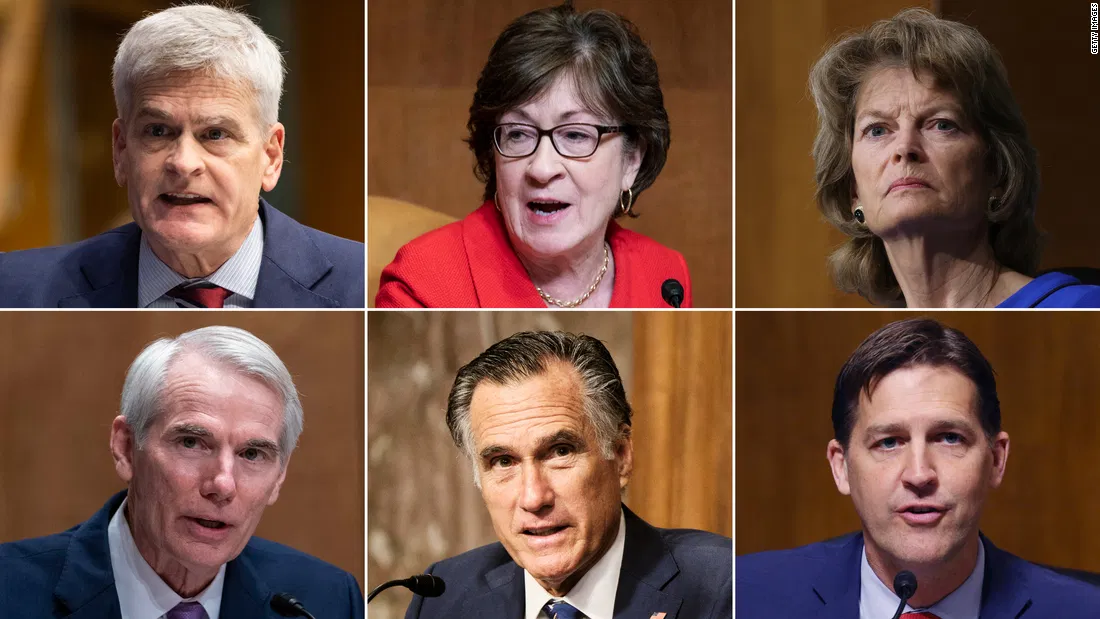 6thattacks on the Capitol. Democrats fell short of the 10 Republican votes needed to advance the bill on Friday. Even though six Republicans backed the bill (Bill Cassidy of Louisiana, Rob Portman of Ohio, Mitt Romney of Utah, Ben Sasse of Nebraska, Susan Collins of Maine, and Lisa Murkowski of Alaska), the 54-35 final vote fell short of the 60 votes needed to advance. However, Schumer will likely bring the bill back up in the coming months. “Senators should rest assured that the events of January 6th will be investigated and that as Majority Leader, I reserve the right to force the Senate to vote on the bill again at the appropriate time,” Schumer wrote in a letter to Senate Democrats on Friday afternoon.
6thattacks on the Capitol. Democrats fell short of the 10 Republican votes needed to advance the bill on Friday. Even though six Republicans backed the bill (Bill Cassidy of Louisiana, Rob Portman of Ohio, Mitt Romney of Utah, Ben Sasse of Nebraska, Susan Collins of Maine, and Lisa Murkowski of Alaska), the 54-35 final vote fell short of the 60 votes needed to advance. However, Schumer will likely bring the bill back up in the coming months. “Senators should rest assured that the events of January 6th will be investigated and that as Majority Leader, I reserve the right to force the Senate to vote on the bill again at the appropriate time,” Schumer wrote in a letter to Senate Democrats on Friday afternoon.
The White House delayed their self-imposed deadline of Memorial Day weekend for a deal on infrastructure so that talks with Senate Republicans on a bipartisan deal on an overarching plan will continue. While the clock is ticking, a number of Republicans have continued to express optimism about reaching a deal. Idaho Republican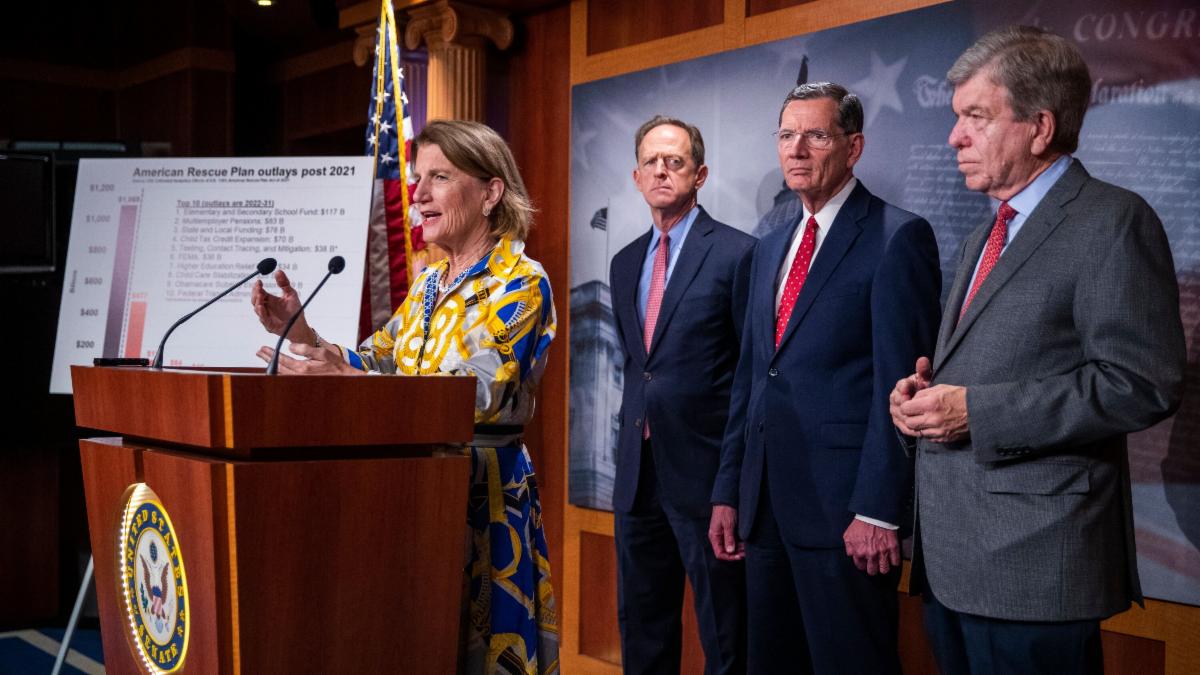 Senator Mike Crapo called President Joe Biden a “straight shooter,” and lead negotiator for the Senate Republicans, West Virginia Senator Shelley Moore-Capito, said the President has “innate Senate negotiating skills.” Last Thursday, Senate Republicans unveiled a $928 billion infrastructure proposal — substantially more than the $568 billion plan introduced in April, yet still far below the $1.7 trillion the White House has put forward. Moore-Capito told reporters that the Republicans “continue to negotiate in good faith. We’re trying to get to that common goal of reaching a bipartisan infrastructure agreement that we talked about in the Oval Office with the president several weeks ago and I talked with him even previous to that.”
Senator Mike Crapo called President Joe Biden a “straight shooter,” and lead negotiator for the Senate Republicans, West Virginia Senator Shelley Moore-Capito, said the President has “innate Senate negotiating skills.” Last Thursday, Senate Republicans unveiled a $928 billion infrastructure proposal — substantially more than the $568 billion plan introduced in April, yet still far below the $1.7 trillion the White House has put forward. Moore-Capito told reporters that the Republicans “continue to negotiate in good faith. We’re trying to get to that common goal of reaching a bipartisan infrastructure agreement that we talked about in the Oval Office with the president several weeks ago and I talked with him even previous to that.”
However, not everyone was as bullish on an infrastructure deal last week. On Sunday, Transportation Secretary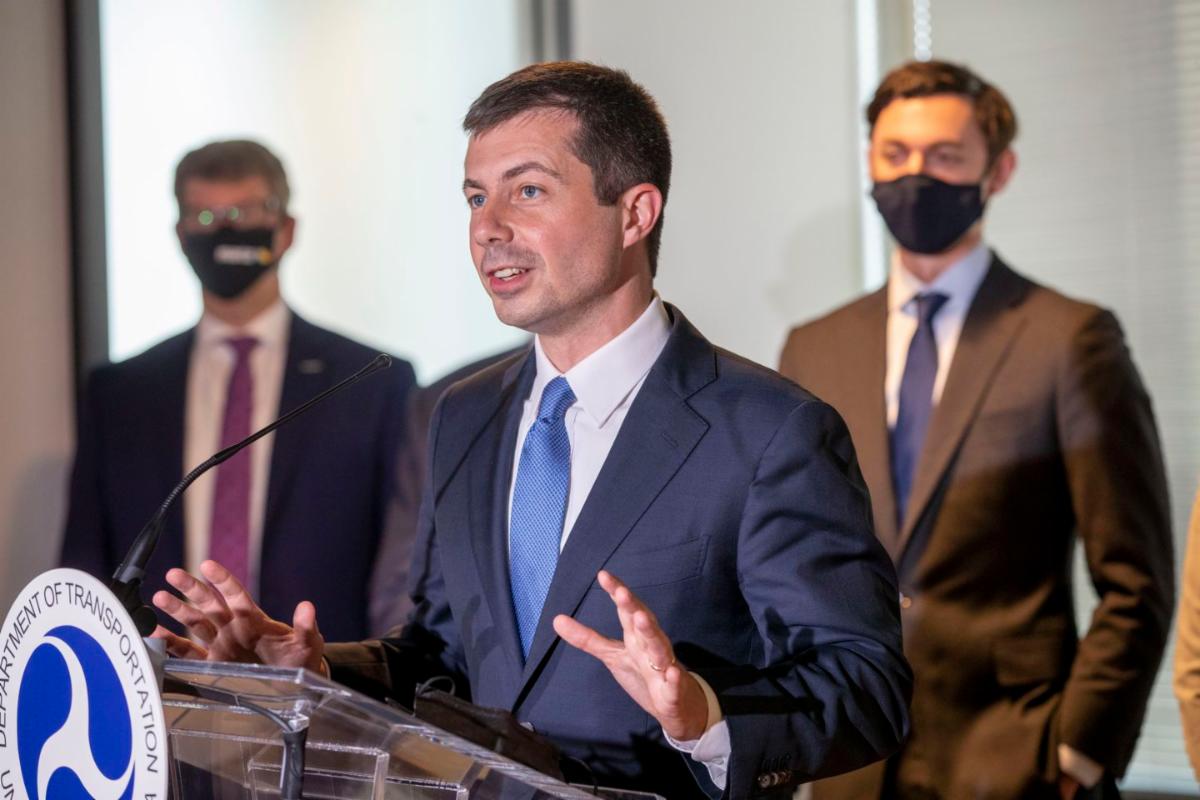 Pete Buttigieg indicated he will be looking to push forward a resolution one way or the other, saying “we are getting pretty close to a fish-or-cut-bait moment.” Many Senate Democrats are pushing the White House to abandon the bipartisan approach and get something done through budget reconciliation as soon as possible. Democratic Massachusetts Senator Ed Markey implored the administration last week to “not waste time” trying to court “Republicans votes that have yet to and will never materialize.” In short, you will want to pay close attention to the Senate when they return next week.
Pete Buttigieg indicated he will be looking to push forward a resolution one way or the other, saying “we are getting pretty close to a fish-or-cut-bait moment.” Many Senate Democrats are pushing the White House to abandon the bipartisan approach and get something done through budget reconciliation as soon as possible. Democratic Massachusetts Senator Ed Markey implored the administration last week to “not waste time” trying to court “Republicans votes that have yet to and will never materialize.” In short, you will want to pay close attention to the Senate when they return next week.
In the State Capital…
Back in New York State, legislators are working hard to wrap up legislative business before primaries in just under two weeks, where several of them will be running as candidates (more on that in next week’s newsletter). There are currently seven Legislative Session days left before scheduled adjournment on Thursday, June 10th. This Wednesday marks an internal deadline by when all Senate bills must be introduced for the year.
Agendas are packed this week as Committees are beginning to close down their business for the year. Many outstanding issues saw movement last week: Assembly Member Linda Rosenthal amended her version of the New York Privacy Act for “same as” to match Senator Kevin Thomas’ bill (which the Senate could bring to a vote on the floor this week); Gig economy was back in the headlines last week, as clergy members wrote a letter to Governor Andrew Cuomo and Legislative Leadership urging action in an effort to salvage a path to passage before the end of Session on the bill. The Gig economy negotiations blew up earlier in the month when major labor groups came out in opposition to the current bill.
New York Privacy Act for “same as” to match Senator Kevin Thomas’ bill (which the Senate could bring to a vote on the floor this week); Gig economy was back in the headlines last week, as clergy members wrote a letter to Governor Andrew Cuomo and Legislative Leadership urging action in an effort to salvage a path to passage before the end of Session on the bill. The Gig economy negotiations blew up earlier in the month when major labor groups came out in opposition to the current bill.
Plenty to do in the next couple of weeks. Please let us know if we can help or provide any further context. Stay tuned.
-Jack O’Donnell
For a complete guide on what to expect before the Legislature adjourns in June, check out O’Donnell and Associates End of Session “Policy Season” Preview.
FOR DAILY UPDATES, FOLLOW US:
BUDC Advances Centennial Park to Preconstruction Phase
Congressional Republicans are Privately Dreading Trump’s Return to the Campaign Trail
Republicans in Washington are dreading Donald Trump’s return to the stump, predicting his rallies will cause a major headache for the party as it mounts a bid to take back Congress in 2022. [Read more.]
Elizabeth Taylor and John Warner: The Brief Marriage of Hollywood and D.C.
Before the late John Warner served for 30 years in the U.S. Senate, he was the sixth of Elizabeth Taylor’s seven husbands. [Read more.]
NYS Legislature: new member spotlight
Rep. Jamaal Bowman